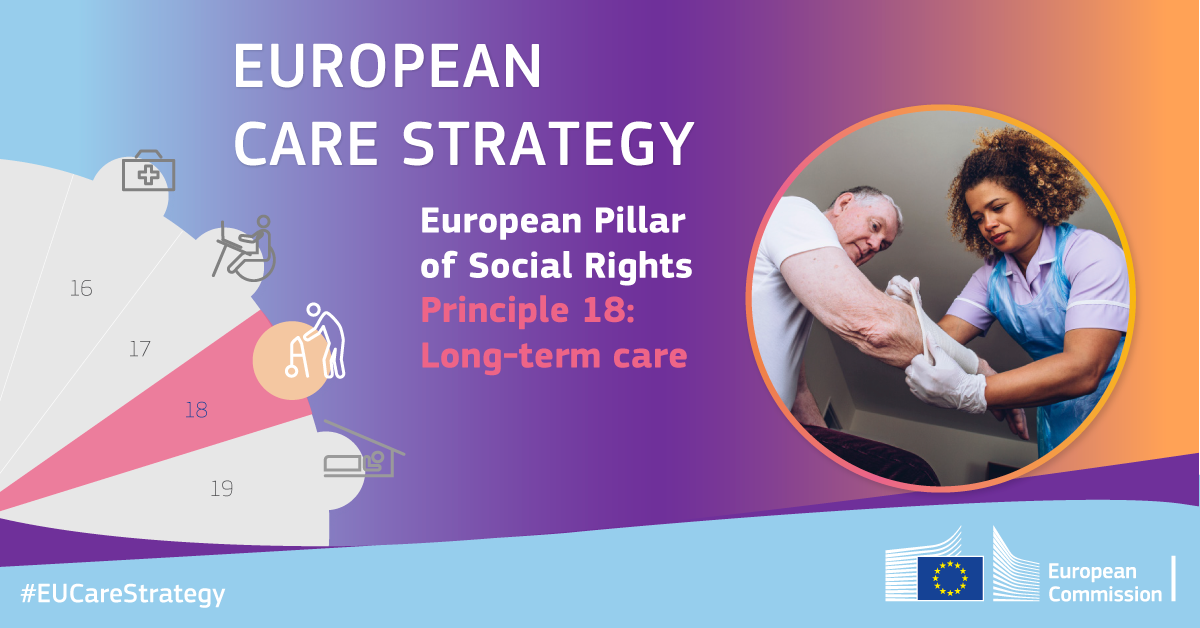
CECOP welcomes the adoption of the Strategy and the related policy initiatives by the European Commission, as a timely and highly necessary step to address the numerous challenges in the EU care sector and to promote further innovation.
We are happy that the Commission’s policy package on care corresponds to a number of recommendations previously formulated by CECOP (see in particular our Cooperatives Care! report):
- The Commission acknowledges the contribution of cooperatives as “important partners for public authorities in the provision of long-term care” and the fact that “social economy actors bring an added-value to the provision of high-quality care services due to their person-centred approach and the reinvestment of profits into their mission and local communities.” Moreover, the European Care Strategy makes an important point that “policy and legal frameworks should create the right environment for the social economy to optimise its contribution to care services.”
- The Commission recognizes that care is a social investment and calls for a significant increase in public investment in care. It recommends the Member States to include quality criteria in public procurement and points out that “the systematic use of socially responsible public procurement could boost the potential of social economy to contribute to high-quality standards in care and to provide fair working conditions”, which is important for cooperatives as organizations that prioritize quality over profit in employment conditions and care provision. More socially responsible public procurements will decrease the pressure on care workers’ wages imposed by cheapest price criteria.
- It prioritizes improvement of carers’ working conditions, upskilling and reskilling of carers, gender balance in the sector, as well as regularization of undeclared work.
- It takes steps to better align the implementation of the European Care Strategy with the European Semester process, the European recovery funds, and other fiscal tools and financial programmes at the EU’s disposal.
- Finally, the Commission also recognizes the importance of accessible digital transition and technological innovation. An example from CECOP’s network – CGM, the main Italian consortium of social cooperatives, which provides care services via digital platforms – has been mentioned as a best practice of increasing access to long-term care via digitalization.
Over the last four decades, cooperatives across the EU have been providing quality care to millions of care recipients at all stages of life and addressing a number of priorities mentioned in the Commission’s care package.
Giuseppe Guerini, CECOP President, stresses that “In many cases, cooperatives have created services where there were none, made investments and promoted social solidarity, at a time when no one was talking about social impact investments. They have created a new model of enterprises (social cooperatives) and hundreds of thousands of jobs. This is why we believe it is important that in the implementation of the European Care Strategy the key role of social economy organizations and first of all social and health cooperatives is recognized.”
The keywords of the care strategy are availability, accessibility, affordability, adequacy and quality, and the cooperative model encompasses all of them, from design to the provision of care, thanks to its multistakeholder nature involving all the concerned actors: care workers, recipients, community and public authorities. To truly ensure availability, accessibility, affordability, adequacy and quality of care, some additional steps which should be taken into account by the European Commission and the Member States are:
- prioritizing long-term investment and sustainable funding for care providers that respects the cooperative model and ensuring that cooperatives are eligible for all relevant EU and national funding
- more favourable state aid rules and a higher de minimis threshold for the care sector
- an effective shift towards a more integrated public-private partnership model, based on a joint analysis of community needs and long-term planning of services by care providers, authorities and other stakeholders
- EU financial instruments for digital, technological and social innovation in the care sector are essential but policy attention to that field should be increased, in particular on the side of the Member States
- stepping up investments in care infrastructure
- promoting and supporting community-based care model among the Member Sates
The European Commission recommends to the Member States to create action plans for implementing the care package on the national level. Care remains mostly national competence, however, the EU has to intensify efforts to improve coordination, harness joint resources and support the Member States in addressing the challenges in the care sector.
CECOP is looking forward to a prompt endorsement of the two recommendations in the Council (expected by the end of this year). We expect to engage in further dialogue with the Commission and our members in the Member States on implementation of the care strategy package, and are committed to sharing expertise from our network.
Additional information:
In 2022, CECOP is running the campaign “Cooperatives Care!”, highlighting the important contribution of care cooperatives across the EU. Find more about the campaign, including our conference on cooperatives and innovation on 15 November (Brussels) here.
Image source: European Commission







 Employment & Social Inclusion
Employment & Social Inclusion 

